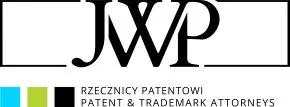The cosmetics industry is a rapidly growing area – it is estimated that by 2023 its value is will reach more than $800 billion. It comes as no surprise then that businesses in this area are also increasingly influenced by solutions from the digital world.
A trend for personalized digital services has emerged in many industries on the beauty market. Market leaders such as Sephora, Estée Lauder and Dior are experimenting with solutions based on artificial intelligence, augmented and virtual reality, and are adapting these advanced technologies to their core business models and strategies.
There are endless possibilities of innovation in the cosmetics industry that can be achieved by using artificial intelligence, with facial recognition technologies, machine learning and virtual make-up contouring already in use. Further development of these technologies can be expected in the years to come.
Image recognition
Future technologies will be built around image recognition, i.e. part of artificial intelligence that focuses on building artificial systems that obtain information from images or multi-dimensional data and process it further. In the cosmetics industry, image recognition is expected to help recognize facial features, analyse data and make predictions or conclusions regarding one's appearance. This will allow better analysis of the human face, which may be used for diagnostic purposes, as well as help a customer choose the most suitable products, e.g. coloured cosmetics best suited to their face. A case in point is Coty's Magic Mirror, which simulates the appearance of lipstick on a real face on the basis of facial features recognition matched with the lipstick's features.
Personalization
Another leading trend in the industry will be personalization and customization of beauty care products to individual features and requirements. L'Oreal's Kérastase Hair Coach is an intelligent hairbrush that contains multiple sensors which can detect the quality of hair when brushing. Consequently, it can recommend matching hair care products. Sephora has made an amazing breakthrough in augmented reality by launching a mobile application that offers virtual make-up tutorials (Sephora Virtual Artist – available on the company's US website). Function-of-beauty and Prose Hair have launched non-standard hair care products containing ingredients and formulas matching the customer's hair profile. Dior has launched the Dior Insider – an AI beauty assistant platform and application, which allows consumers to ask questions about their products through interactive chatbot software. Proven, a company specializing in skin care, is marketing an AI-based skin evaluation program called the Skin Genome Project, which uses so-called deep learning to analyse over 20,000 skincare ingredients and map skin patterns and quality, creating a completely personalized skincare product which is then delivered to the customer. The Skin Genome project won the MIT Artificial Intelligence Award 2018 for ground-breaking technology.
Solutions based on artificial intelligence contribute to the flourishing of the cosmetics industry by delivering innovative services which until recently were inconceivable. This development will most likely lead to a world with ever greater integration of technology and beauty, which is the most fascinating aspect of this issue.
The content of this article is intended to provide a general guide to the subject matter. Specialist advice should be sought about your specific circumstances.

